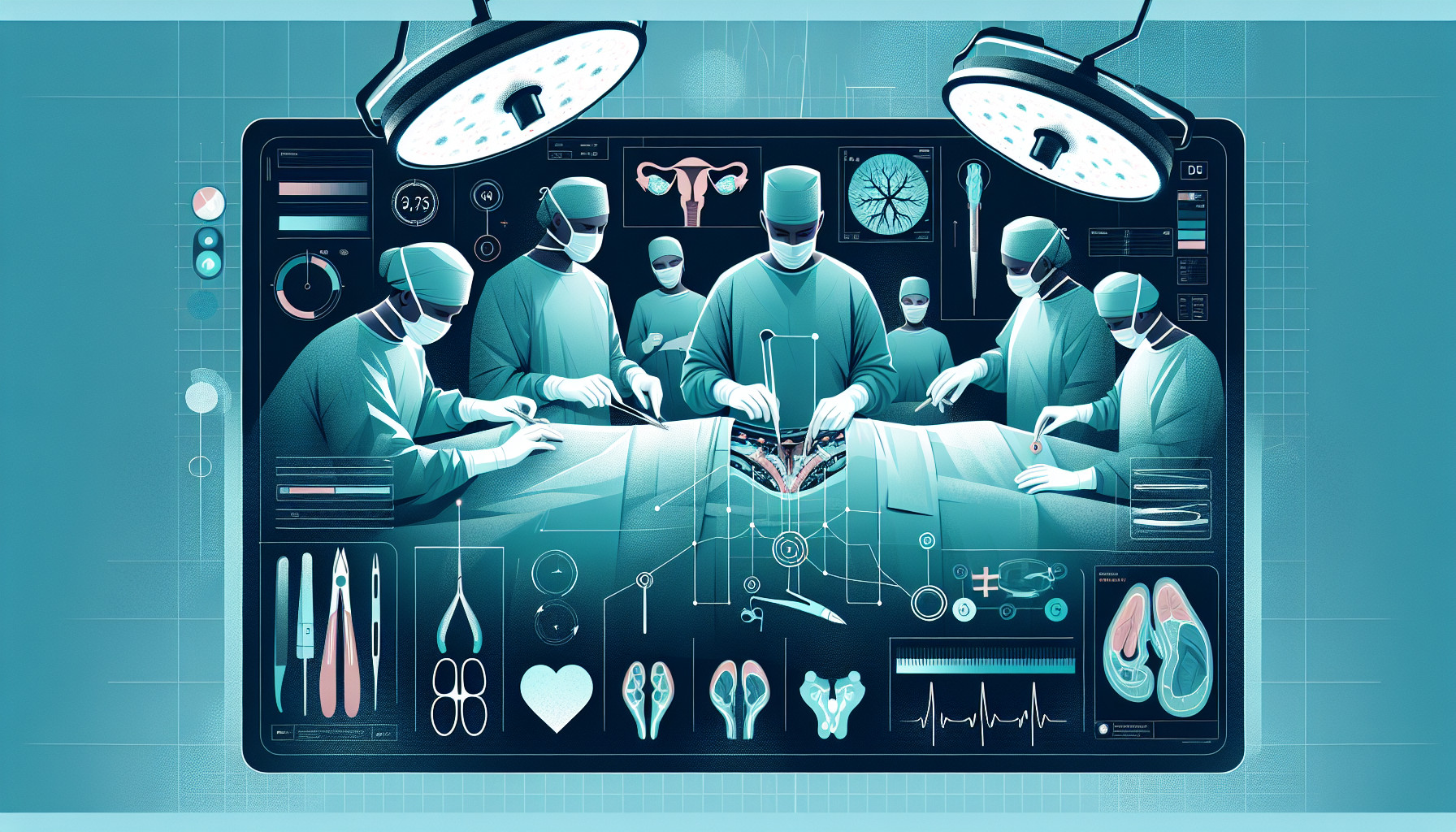Our Summary
This research paper discusses how delays in surgery for conditions like testicular torsion (twisting of the spermatic cord) or intestinal volvulus (twisting of the intestine) in children can increase the risk of losing the affected organ. The study reviewed 100 cases each of these conditions to understand the timeline of events from the first symptom to surgery.
For testicular torsion, the median time from the onset of symptoms to the first medical consultation was 12 hours. More than a third of the children over 5 years of age were transferred from an external service area. For intestinal volvulus, the median time from the onset of symptoms to assessment was also 12 hours, and the average time spent in the hospital before surgery was over 6 hours.
The study concludes that delays in reaching the hospital and in getting surgery contribute significantly to the risk of organ damage. This problem is not simple and needs to be addressed at a public health level. It’s suggested that all surgeons and trainees who might treat these children should receive training in managing testicular torsion.
The authors also recommend finding new ways to improve efficiency in hospitals. However, they note that it’s more difficult to deal with issues of access to specialized neonatal surgery due to factors like distance and the level of surgical expertise needed.
FAQs
- How does delay in surgery for conditions like testicular torsion or intestinal volvulus affect children?
- What are the recommendations of the study to reduce the risk of organ damage due to delays in surgery?
- What were the findings of the study in relation to the time taken from the onset of symptoms to the first medical consultation for testicular torsion and intestinal volvulus?
Doctor’s Tip
One helpful tip a doctor might tell a patient about testicular surgery is to seek immediate medical attention if they experience sudden and severe pain in the testicles, as delays in treatment can increase the risk of complications and potential loss of the affected testicle.
Suitable For
In general, patients who are recommended testicular surgery include those with conditions such as testicular torsion, testicular cancer, hydrocele, varicocele, and epididymitis. Testicular torsion, in particular, is considered a medical emergency and requires immediate surgical intervention to prevent the loss of the affected testicle. Other conditions, such as testicular cancer, may also require surgical removal of the affected testicle as part of the treatment plan.
Additionally, patients who experience chronic testicular pain or swelling that does not improve with conservative measures may be recommended for surgery to address the underlying cause of their symptoms. Ultimately, the decision to undergo testicular surgery is based on the individual patient’s medical history, symptoms, and the recommendation of their healthcare provider.
Timeline
Before testicular surgery, a patient may experience symptoms such as sudden and severe testicular pain, swelling, redness, and nausea. They may seek medical attention and undergo diagnostic tests such as physical examination, ultrasound, and blood tests to confirm the diagnosis of testicular torsion.
After testicular surgery, the patient may experience post-operative pain, swelling, and discomfort. They will be advised to rest and avoid strenuous activities for a period of time to allow for proper healing. Follow-up appointments with the surgeon may be scheduled to monitor recovery and ensure that there are no complications.
Overall, the timeline for a patient before and after testicular surgery involves experiencing symptoms, seeking medical attention, undergoing surgery, and recovering with proper care and follow-up.
What to Ask Your Doctor
Some questions a patient should ask their doctor about testicular surgery include:
- What is the reason for the surgery and what are the potential risks and benefits?
- What is the expected timeline for the surgery from the first consultation to the actual procedure?
- What are the possible complications that could arise during or after the surgery?
- How experienced is the surgeon in performing this specific type of surgery?
- What is the success rate of this surgery and what is the expected recovery time?
- Will there be any long-term effects or changes in function after the surgery?
- What are the alternative treatment options available and why is surgery recommended in this case?
- How can I best prepare for the surgery in terms of physical and mental readiness?
- What follow-up care will be needed after the surgery and what signs should I watch for that may indicate a complication?
- Are there any lifestyle changes or precautions I should take post-surgery to prevent future issues?
Reference
Authors: Castle C, Beasley SW, Taghavi K. Journal: J Paediatr Child Health. 2022 Jan;58(1):146-151. doi: 10.1111/jpc.15684. Epub 2021 Aug 10. PMID: 34375478
